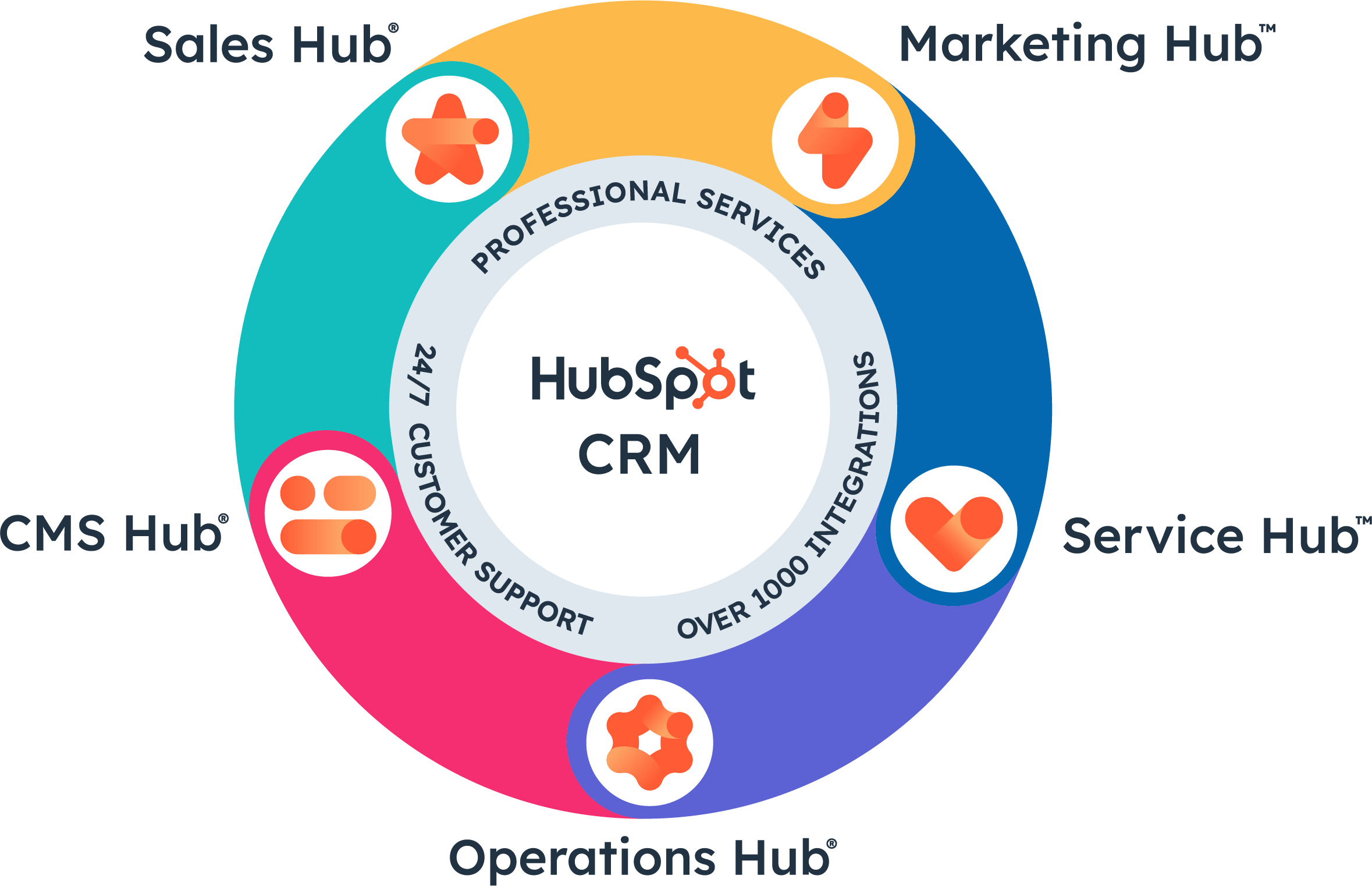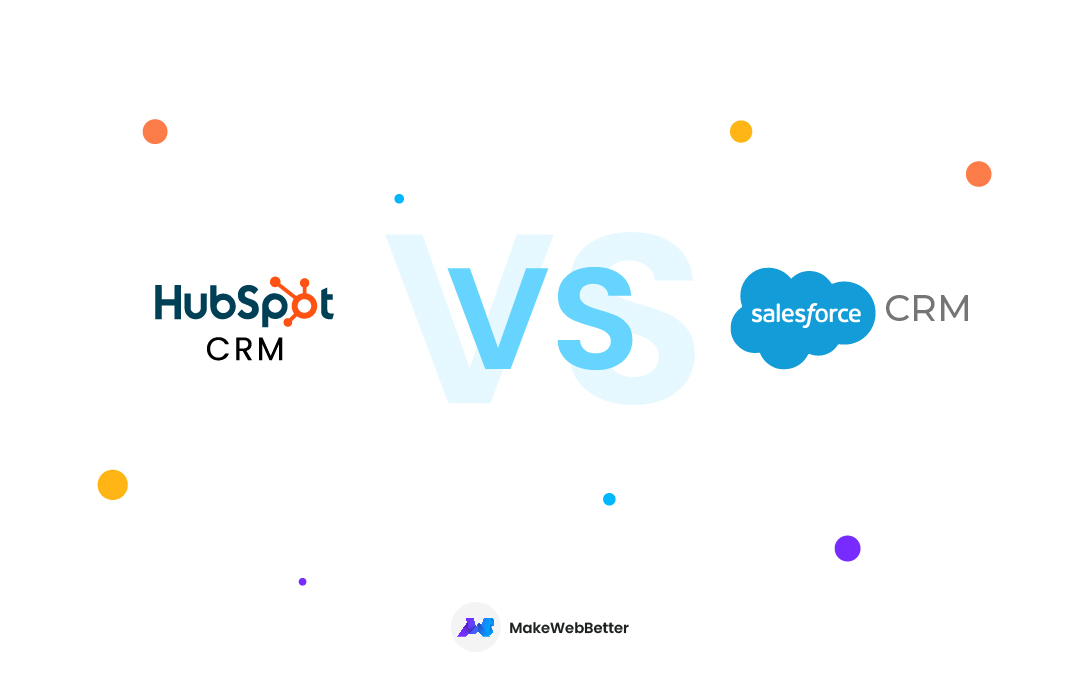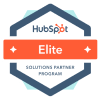What’s so fascinating about CRM software that HubSpot vs Salesforce CRM tift is getting stronger daily?
Some may feel this tift is baseless. Obviously, because Salesforce CRM is the global player in the market and has been in this field for much more time than HubSpot CRM.
However, HubSpot has conveniently covered this gap and is now competing with Salesforce at the forefront.
In this comparison article between HubSpot and Salesforce CRM, we’ll be discussing the major factors and functionalities that a CRM must have in order to fulfill the requirements of your business goals and objectives.
Table of Content
So, without any delay, let’s begin!
HubSpot vs Salesforce CRM At a Glance!
Talking about CRM, both Salesforce and HubSpot are competitively robust and dynamic platforms, aiming high to help you improve your customer experience while streamlining your processes and workflows and increasing ROI.
However, which is the best CRM for your business depends purely on your goals, budget, and your usage objectives.
Here is a brief glance over HubSpot vs Salesforce CRM to help you identify the best alternative for your business.
HubSpot |
Salesforce |
|
| Ease of Use | |
× |
| Customization | × | |
| Pricing Plans | × | |
| Sales Reporting & Forecasting | ||
| Marketing Features | ||
| Customer Support | × | |
| Market Share |
Source: crm.org
1. What is the Difference Between HubSpot and Salesforce CRM: An Overview
In this section, let’s first see the basic roles and responsibilities of each to properly proceed with the HubSpot vs Salesforce CRM comparison.
What does HubSpot Do?
HubSpot emerged as the cloud-based platform with the one-stop solution for all your CRM tools to help your business scale and grow better. It offers a complete solution to keep your sales, marketing, services, and content team on the same page when planning strategies to deepen their relationship with customers.

Source: HubSpot
The best part of working with HubSpot is that you get a unified experience across all the tools as they are built in-house on one code base. Hence, making it easier for your team to adopt HubSpot and use it to its fullest potential.
What does Salesforce Do?
Similarly, Salesforce is also a cloud-based CRM platform with tools and functionalities for all segments of your team including marketing, sales, and services.

Source: Salesforce
However, unlike HubSpot, Salesforce built its architecture through acquisitions and collaborations. Therefore, learning Salesforce can be visualized as a steeper learning curve; thereby requiring more resources and budget to get Salesforce systems working together.
Features |
HubSpot |
SalesForce |
| Opportunity & Pipeline Management | ||
| Territory Management | × | |
| Task Management | × | |
| Desktop Integration | × | |
| Reporting & Dashboards | ||
| Output Document Generation | × | |
| Data Import & Export | ||
| Document & Content Management | × | |
| Integration APIs |
Source: Forbes Advisor
2. HubSpot vs Salesforce CRM: Pricing & Plans
The most critical factor that users consider when choosing CRM software is its pricing structure and how much will it cost them. However, straightforward this comparison may seem, it comes down to the number of users required and their needs.
Both Salesforce and HubSpot offer tiered plans of services ranging from Basic/Starter to Advanced/Enterprise. The biggest contrast in the pricing structure of each platform is that HubSpot also offers a Free plan (but with limited inclusions).
To make you understand the cost breakdown more efficiently, HubSpot suggested the following example –
HUBSPOTSALES HUB ENTERPRISE PRICING |
SALESFORCESALES CLOUD ENTERPRISE PRICING |
|
EXPENSE BREAKDOWN |
||
| List Price | $6,000/mo for 50 paid users | $7,500/mo for 50 users |
| Licensing Costs | Pay $120/mo for each additional paid user | Pay $25 – $150 per additional user depending on the package |
| Implementation | Flat rate of $3,000 for Enterprise onboarding.
Additional technical consulting services are available for additional fees |
Salesforce offers a ‘Jump-Start’ implementation for $5,000 |
| Platform Maintenance | Enjoy a seamless platform built on one code base | Setup and maintain connectors for multi-cloud integrations. 20 work hours to configure, with regular updates ($5,000) |
| Outbound Calling Software | This is included in all plans. Calling limits applied (2,000 minutes per user/mo for Enterprise); not available in all countries | Calling and Logging $40/user/mo (for 1,000 minutes) |
| Sales Engagement Software | Included with Enterprise:
|
Salesforce Engage ($50/user/mo), and High-velocity Sales with Salesforce Inbox |
| Conversation Intelligence and Call Coaching Software | Included with Enterprise: 1,500 transcription hours per account/mo. Additional capacity available for purchase | High-velocity Sales ($75/user/mo) includes Einstein Call Coaching, Salesforce Inbox, sequences, and queues |
| Customer Support Costs | Phone and email support included for all Professional and Enterprise plans | 20% of net-cost for phone support and 24/7 coverage. 30% of the net cost for additional feature access (Add 5% for US-based support) |
TOTAL |
||
| Estimated Total Cost for 1 Year for a team of 50 | $75,000 | $236,800 |
Source: hubspot.com
3. HubSpot vs Salesforce CRM: Capabilities
Customer relationship management(CRM) tools help you build the base for your sales-oriented process. The CRM keeps your data organized, further increasing your efficiency and improving decision-making with clear direction on strategies to grow ROI while scaling your business growth.
In this section, we’ll see how HubSpot and Salesforce come face-to-face with the most critical CRM capabilities.
a. Ease of Use
HubSpot is coherently targeted at offering the best user experience. With the calculated combination of its robust features and the intuitive navigational UI/UX, HubSpot is loved by each user alike, be it the admin or the end-user.
This is also the major reason that HubSpot became popular in less time and is now competing with the CRM giants like Salesforce. HubSpot is user-friendly and a B2B CRM software. When the HubSpot CRM is paired with its other powerful tools like reporting and automation features, it brings better visibility to the overall health of your business; which is a greater valuable asset for the business admins and auditors.
On the other hand, Salesforce CRM is particularly powerful with robust and customizable reporting. However, you need to go through extensive training beforehand and the additional resources to setup and customize reportings with Salesforce CRM.
HubSpot and Salesforce both offer powerful tools for scaling businesses. But what good is power if the tools are hard to learn, understand, and put to use?
— HubSpot
b. Scalability
HubSpot is very peculiar in its user experience and functionalities. It will never compromise its power for usability.
With the flexible data structure for CRM, and custom objects, and with easy and effortless customizations, HubSpot brings you the opportunities to scale up your business gracefully.
Another point of consideration is that with HubSpot CRM, you can stay agile even when you scale.
Salesforce, on the other hand, also offers endless customization possibilities. But its acquisition architecture becomes more clunky as you increase the number of users, processes, or data due to the less integrated CRM model.
Though they offer nuanced forecasting and reporting dashboards; adding such features requires more development and admin support, hence, making it difficult for eCommerce businesses to adapt and change accordingly.
c. Flexibility
HubSpot’s urge to provide dedicated resources for admins, managers, and reps provides a better environment for business owners. Moreover, you don’t need a dedicated admin to get started with the HubSpot CRM. To define a more flexible CRM approach, you can make use of custom objects too. Hence, making your CRM more intuitive, seamless, and budget-friendly.
On the other hand, implementing and maintaining Salesforce CRM demands the presence of experienced and trained admins or hiring a consulting agency. The complex architecture of Salesforce limits its flexibility the most.
d. Integration
Talking of HubSpot vs Salesforce CRM, Integrations are the most critical capability to keep in view for choosing better. Both HubSpot and Salesforce provide a wide range of CRM integration options on HubSpot Marketplace and App Exchange, respectively.
However, the benefit of going further with HubSpot in this capability is that it offers open APIs. These APIs can be used to develop custom integrations and even SaaS-based applications like FormPay Integration, Automated Coupons, WooCommerce Integration, Magento Integration, etc.
Moreover, HubSpot also offers internally-supported integrations with platforms like WordPress, Zapier, Chrome, Wistia, and many more.
e. Support
Salesforce charges approximately 20% of your net contract budget to offer a 24/7 customer support facility and if you add on additional features, the figure might go up to 30%.
The percentage pricing concept of the Salesforce CRM implies that with every additional user or a feature addon, your contract cost will rise too. Hence, you’ll be liable to pay more for the same support facility.
While with HubSpot CRM on the other hand, there is an ease to your customer support requirements as they are steeply inclined to it too. HubSpot is dearly invested in providing the best customer experience to all its clients in their comfortable mode of communication — email, chat, or call support.
Moreover, HubSpot doesn’t charge you an additional penny for the support facility or the add-on features for pro and enterprise customers.
HubSpot or Salesforce CRM! Which is Suitable for Your Business?
Wrapping up the comparison between HubSpot CRM and Salesforce CRM, both CRM platforms are eminent choices specifically for the targeted goals of medium and small businesses.
In the HubSpot vs Salesforce CRM showdown, HubSpot takes the lead in categories like ease-of-use, navigational UI/UX, easy scalable options, and the free versions. Nevertheless, the loyal fans of Salesforce CRM may debate further on the point that Salesforce CRM’s complexity is its strength.
Ultimately, it’s your business and goals that should be the primary factor to choose the right CRM.
Willing to take this discussion a step forward?
Connect with our CRM implementation experts and see what they have to say…
Frequently Asked Questions (FAQs)
1. Is HubSpot or Salesforce better?
Both HubSpot and Salesforce CRM are robust and popular. Each of them has its set of features, pros, and cons. Take your pick according to your requirements and goals.
2. Which is easier for the startup to use, HubSpot or Salesforce?
Based completely on the flexibility and customization functionalities, I’ll recommend HubSpot CRM for startups over Salesforce CRM.
3. Is HubSpot cheaper than Salesforce?
HubSpot has multiple plans targeting the needs of its users. The free plan from HubSpot definitely gives it a heads-up in contrast to Salesforce which follows a paid hierarchy plan.
However, HubSpot and Salesforce CRM, both offer multiple add-on suggestions that can add to the overall cost of your CRM to exceed the marginal pricing structures.
4. Does CRM require a large IT investment?
Certainly not. You don’t need a large investment plan to hire IT staff or CRM managers to work on your eCommerce CRM platform. There are numerous CRM software and tools available today that you can employ, being a novice user.
5. Does HubSpot or Salesforce have a greater market share?
HubSpot has approximately 32% of the market share in the CRM industry and is serving about 137,000 websites currently. On the other hand, Salesforce has a slightly higher market share of about 38% but if we see in terms of the number of websites using Salesforce CRM, it is only 100,000 websites which is a significant minimum number in comparison to HubSpot.








